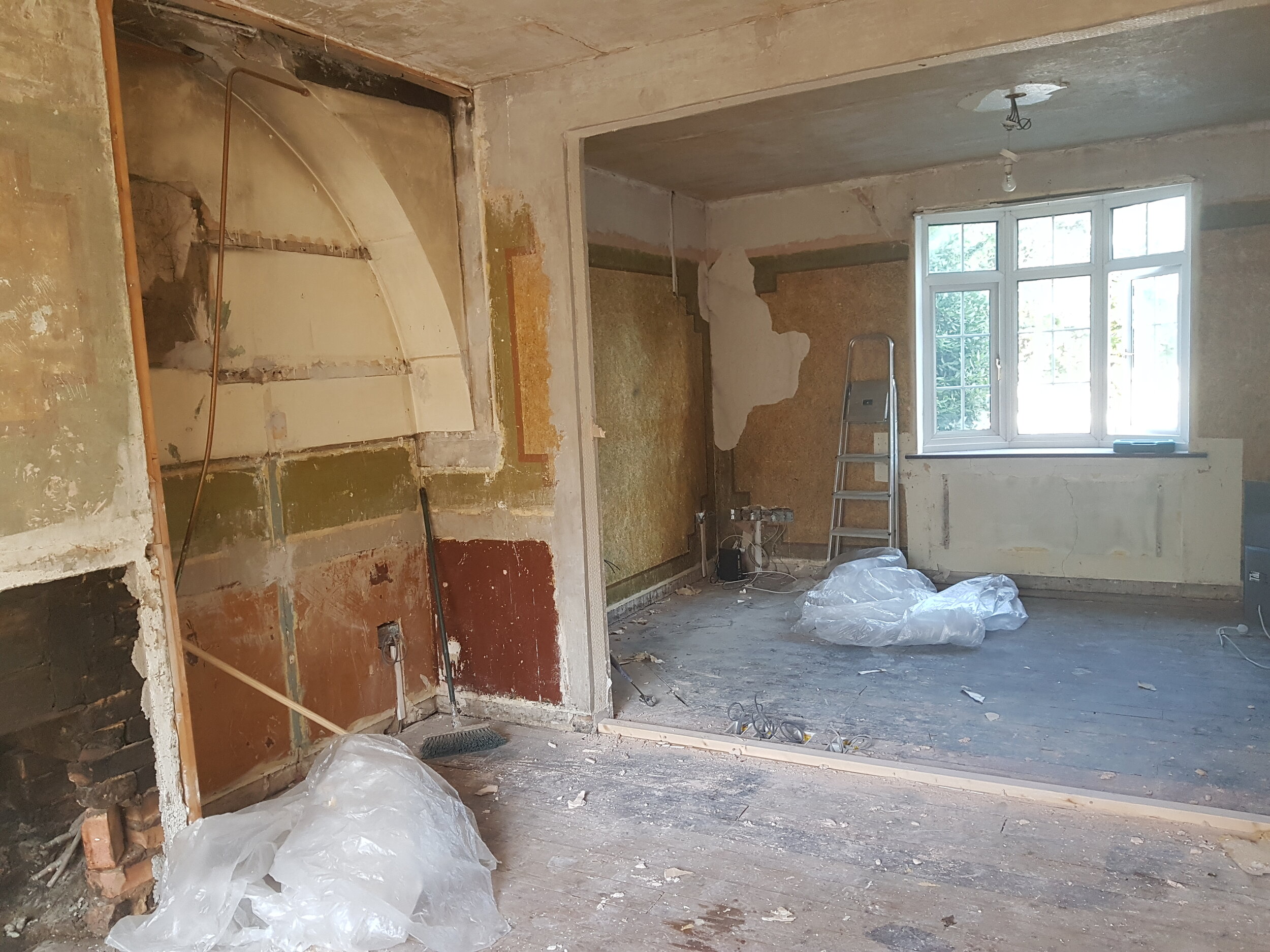What happens if you strip off your mental wallpaper?
We’re having the house re-wired and re-plastered. We’ve stripped the wallpaper, lifted the carpets and found all the hidden stuff we couldn’t see when we bought the place. It was nerve-wracking, but also brilliant. Now we know what we’re dealing with. Guess what? This is a facing the truth about yourself metaphor.
We could have stayed living in the house as it was when we moved in. We could be living with ugly, textured 1980s wallpaper and a drab, grey fitted carpet throughout. We could have decided that we didn’t want to know if there were issues with the plaster or woodworm in the floorboards. We could have made do with the old radiators, even if they were full of gunk and didn’t get hot all the way down. We could have decided that whatever the strange plasterboard alcove was hiding could stay there.
We didn’t.
We sucked it up, called in the professionals, and pulled away the superficial to find what was really underneath.
What was really underneath?
A building site. The wooden floor is dusty. The walls are painted in an art deco style with a slightly eccentric mix of yellow ochre and khaki green with chestnut brown accents. There are wires hanging from uncovered electric sockets. A capped water pipe dangles from one wall. There are dust sheets bundled up. A broom and a ladder propped against a wall. The electric pendant light dangles from a hole in the ceiling.
Well, there was lots of gunk in the central heating system but new radiators and a flush through sorted that out. There was a really weird paint job that we suspect might date back to the 1930s when the house was built. There was some places where the plaster is pulling off the walls and will need to be cut away and replaced completely. There was a set of electrics so dodgy we are now re-wiring altogether. There were floorboards in surprisingly good condition (hooray!) just waiting for sanding and polishing. There was an interesting arch that’s part of the chimney system.
If you go through struggles that you are powerless to prevent, (difficulties in childhood, natural disasters, serious illness, adult trauma and abuse etc) you will develop the mental equivalent of ugly wallpaper, cheap carpet and strange pointless alcoves as a way to feel or appear normal until you feel safe enough to repair the effects of your struggles.
The trouble is, your brain puts up the wallpaper without asking you first. It carpets the floor before you have a chance to object to the colour. It sticks an alcove over things you actually quite like, so you forget they were ever there. In fact, you’re so busy surviving, you don’t even notice that your mental home has changed. By the time you are in a position to do anything about it all, ugly wallpaper, drab carpet and strange alcove seem normal. This is just how you are.
Many of the struggles I wrote about above often involve a financial element. That can lead to the sense of powerlessness and pain connected to the event transferring to your feelings about money. There are also times when money is right at the heart of a painful experience, like losing your job or finding your partner has secret debts.
If you have stopped looking at your finances or told yourself you’re “bad with money” or “not a money person” that’s ugly wallpaper.
Here’s the thing. Until you look underneath, you won’t know where the plaster is pulling away from the wall, so you won’t know what needs repair. You’ll be living in the cold needlessly because you would rather avoid dealing with it than get warm.
More than that, you also won’t know about that arch that could become a cool feature if you let it out. You won’t be able to polish up and enjoy your good solid floorboards.
Personal finance experts often tell you to face facts so you can fix where you’re failing. I’m telling you to face facts so you can discover and celebrate where you’re already better than you knew.
Yes, and fix the bits that need fixing, because you deserve better than cracking plaster and cold radiators.
Are you ready to lift the grey carpet over your money mind?
Try My Money Canvas. It’s a quick, free, simple tool to help you uncover your financial strengths and weaknesses with no maths and no paperwork required.
